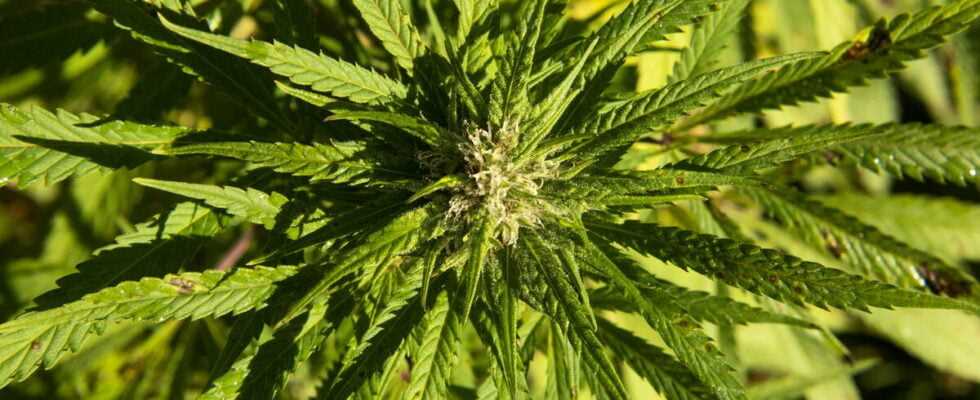Forget the traditional New Year’s kiss under a ball of mistletoe: for this December 31, 2021, we kiss under a cannabis stalk loaded with CBD. The government decree around the legal framework for products loaded with cannabidiol (CBD), a non-psychotropic cannabis molecule, was published this Friday morning in the Official Journal. Oil, herbal tea, cosmetics, flowers: this text frames the CBD mania in which France is immersed.
Unsurprisingly, France decides to ignore a large part of the income that green gold can generate: it prohibits the sale of raw flowers or leaves in all their forms, alone or in a mixture with other ingredients. The ban also applies to the possession of cannabis flowers, which were however widely used for relaxing and not soothing smoke, as a substitute for the classic joint or for the tobacco cigarette. This year, we had seen it land in specialized stalls and even in tobacco bars. According to industry professionals, hemp flower today represents 50% to 70% of retail sales, not counting tobacconists. Almost 3,000 of them are supplied with cannabis flowers by the Buralzen company. From January 2 at midnight, all tobacconists, pharmacists and specialized stalls that sold raw flower will have to withdraw it from the sale.
The ban on the sale of hemp flowers is presented by the government as a health and public order decision. The authorities consider that the police will not be able to differentiate between a flower loaded with THC and one loaded with CBD. However, in Switzerland, the police have since 2018 had tests that allow them to distinguish one molecule from another when one of its agents faces a rolled joint. Just place a few strands of herbal cannabis in a small, thick plastic bag containing two mini-ampoules. Press between the thumb and forefinger to release the chemical reagents present which are sodium hydroxide and ethanol. Shake briefly and in less than 30 seconds the liquid turns colored. Pink is CBD or blue is THC.
“A passage in force”
For Yann Bisiou, lecturer in private law and criminal sciences, and specialist in drug law, “This publication is puzzling from a legal point of view.” According to him, the decree is “Manifestly contrary” to the Kanavape case law. On October 23, 2018, the Aix-en-Provence court of appeal appealed against all odds to the Court of Justice of the European Union in this case which concerns two entrepreneurs from Marseilles who marketed an electronic cigarette based on CBD. A few days later, on November 18, the European body delivers its verdict: the ban in France on the marketing of CBD is illegal. The European judges put forward the free movement of goods and recall that unlike tetrahydrocannabinol (THC), the cannabis sativa molecule with psychoactive effects, CBD cannot be considered as a narcotic, having “No psychotropic effects or harmful effects on human health”. On June 23, 2021, it is the Court of Cassation which recalls that flowers produced legally in a European country cannot be banned in France.
However, this long-awaited decree contains an unexpected decision. Completed the rate of 0.2% delta-9-tetrahydrocannabinol (THC), the psychotropic molecule of cannabis, to be observed in finished products. Now, this limit is reduced to 0.3%. “The cultivation, import, export and industrial and commercial use are authorized only of varieties of Cannabis sativa with a delta-9-tetrahydrocannabinol content not exceeding 0.30% and which are listed in common catalog of varieties of agricultural plant species or in the official catalog of species and varieties of plants cultivated in France “, specifies the text. This rate hike was planned within the framework of the new common agricultural policy which is due to enter into force in January 2023. Entrepreneurs and business leaders facing justice for goods with a rate higher than 0.2% and lower at 0.3% THC will see their chases drop immediately.
“This decree is a forced passage. The appeals will be certain and four preliminary questions, in particular around the definition of the criteria for classifying narcotics, are currently before the Constitutional Council which is due to rule on January 7, indicates Yann Bisiou. The Court of Cassation may very well also rule and say that the decree is not valid. This text does not solve anything and poses new problems. “
